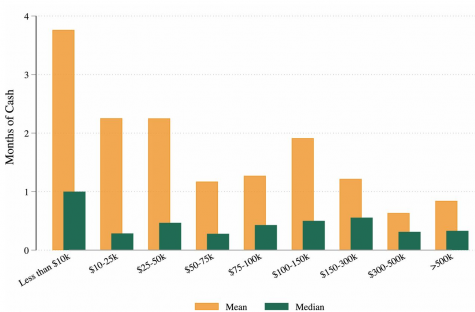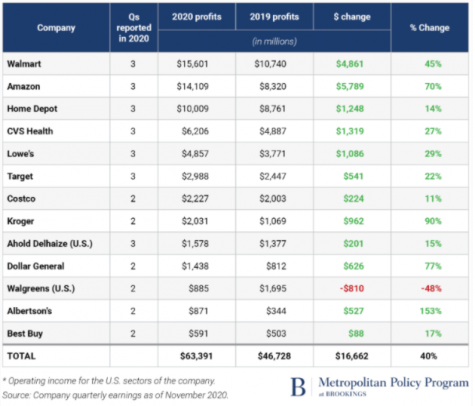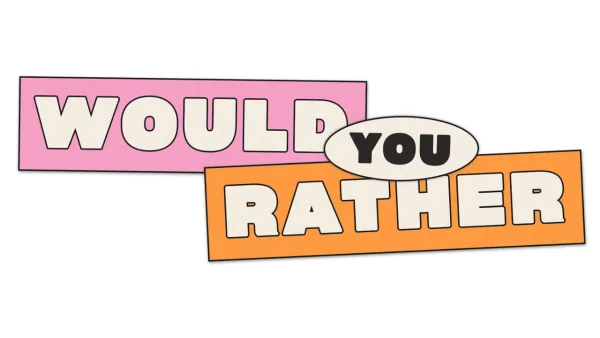Small Businesses vs. Corporations During Covid-19
March 10, 2021
Covid-19 has led to economic troubles for many small business owners as they struggle to exist as large companies continue to grow in this time of uncertainty. This has caused an increase in the disparity between small and large businesses and has forced significant changes in the economy.
Economically, small owners business owners were faced with much difficultly when it came to the pandemic. Many who thought closing their business temporarily at the start of the quarantine have had to permanently close down their livelihoods. A study done by various business and economic professors in July 2020, showed the “financial fragility of many small businesses, and the significant impact COVID-19 had on these businesses in the weeks after the COVID-19–related disruptions began” as they reported that only about three-quarters of responding businesses had enough money at the moment to last about two months, and companies with over ten-thousand dollars in monthly expenses could last only about two weeks. For those businesses that do not have enough money to outlast the virus, their customers will most likely transfer over to the large corporations that are thriving in the quarantine economy.
have had to permanently close down their livelihoods. A study done by various business and economic professors in July 2020, showed the “financial fragility of many small businesses, and the significant impact COVID-19 had on these businesses in the weeks after the COVID-19–related disruptions began” as they reported that only about three-quarters of responding businesses had enough money at the moment to last about two months, and companies with over ten-thousand dollars in monthly expenses could last only about two weeks. For those businesses that do not have enough money to outlast the virus, their customers will most likely transfer over to the large corporations that are thriving in the quarantine economy.
Furthermore, a tweet made by Senator Amy Klobuchar in November 2020 claimed that 800 small businesses are closing each day and verification sources have responded that the number may be higher than 800.
While measures have been put in place in order to help small business owners out such as the Paycheck Protection Program (PPP), 88% of small business owners have already gone through their loan and 32% still had to lay off employees and cut wages according to Goldman Sachs Group, Inc.
Even after the quarantine has ended, small businesses will continue to suffer as the pandemic has bolstered the shift to online shopping. Small businesses simply do not have enough resources to accommodate their customers’ new ways of shopping, while large corporations can make the transition to online transactions. However, even the large companies who fail to make the shift are also having to close their stores, as “over 200 shopping centers” have already shut down.
Even the entertainment industry has become more prominent online than in real life. As consumers can no longer go to theaters or stadiums for live movies and sports more time spent on electronic devices has gone up 81% since the last year. Celebrities and other performers have been seen doing concerts over video games and other forms of virtual reality.
As reported by the Washington Post, “ shoppers spent 50 percent more online in April and May than usual.” Large companies such as Amazon, Walmart, Target, and Best Buy have significantly increased their online sales. Especially for Amazon and Walmart as, respectively, the stock prices have increased seventy and thirty-six percent, combined they have made an extra $10.7 billion dollars on top of last year’s normal profit, which is a 56% increase. Starting in May 2020, where Amazon offered 125,000 full-time positions, Amazon has grown exponentially and is continuing to hire more works in order to meet the demands of the new online shopping world. Ultimately, while small businesses are slowly being weeded out of the economy, corporations are becoming even more prominent in society.





















